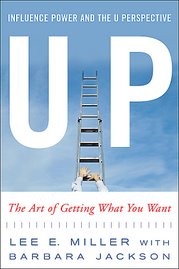
CAREER COACH
Kristen Lyle, an audit manager for KPMG, a national accounting firm with offices in New Jersey, left her field when her second child was born. After several years, she decided it was time to return to work. While Lyle had maintained her license, she never considered going back to work as an accountant. She hadn't stayed current with developments in her profession, and she assumed an accounting firm would not want to hire someone who had been away for several years.
Lyle had come face to face with the twin demons that frequently haunt someone seeking to return to the work force: lack of confidence and lack of currency.
When Lyle mentioned to a friend from her old firm she was considering changing careers, her friend spoke with a manager at KPMG and the firm hired her back, with the same title and responsibilities she had when she left. They also provided her with the training she needed to get up to speed, and have been supportive of her need to balance work and family.
How difficult is it to return to work after taking time off for an extended period? The answer depends on whom you ask. It also depends on how you approach the task. It has become so commonplace for people to take time off from their careers there are terms to describe the process: off-ramping, which means taking a break in your career, and on-ramping, referring to returning to the work force.
Illness, disability and ailing parents as well as family responsibilities can cause many of us to interrupt our careers. For those like Lyle seeking to on-ramp, many will find companies eager to employ them; others, though, will receive a frosty reception.
For someone who has been out of the work force for a period of time, the unspoken question on every employer's mind is: What have you done while you were not working that is relevant to the job we are seeking to fill? Employers will want to assure themselves that, if hired, you will be able to contribute immediately.
Courses taken at local universities or online can demonstrate you have remained interested and active in your profession. Classes that enable you to master new technologies are of particular interest to employers because of the value they place on staying current with rapidly evolving technology. Remaining active in professional organizations and reading professional journals similarly will be looked on favorably. Volunteer work also is an excellent means for someone taking time off to develop new skills and to maintain existing ones.
Here are some other tips for easing the transition:
- Don't apologize for taking time off, but express enthusiasm for your decision to return to work now. Focus on the skills you bring to the job, the quality of your past experience and what you have done while you were not working that has enhanced your existing skills and helped you develop new ones.
- Tell everyone you know and everyone whom you have previously worked with you are interested in returning to work and describe the type of job you are seeking. You are most likely to find a job through someone you know.
- Consider easing your way back into the work force with part-time or temporary jobs. These jobs will allow you to re-familiarize yourself with the industry and update your skills. You also could start your own business from home. That could turn into a full-time occupation, or it could serve as a jumping-off point to re-enter the work force.
The notion that a person will spend their whole career with a single company moving up the career ladder seems as anachronistic today as the local malt shops we see on TV Land reruns.
Many of us will find ourselves taking time off from our careers for a variety of reasons. A little planning will go a long way toward ensuring your time off is little more than a short detour on your way to a fulfilling career. Never assume an employer won't want to hire you or won't be willing to accommodate your needs.
A veteran human resources executive, Lee E. Miller is the author of "UP: Influence Power and the U Perspective -- The Art of Getting What You Want," and the co-founder of YourCareerDoctors.com, a Web site devoted to career success. Mail questions to Lee@YourCareerDoctors.com.


No comments:
Post a Comment